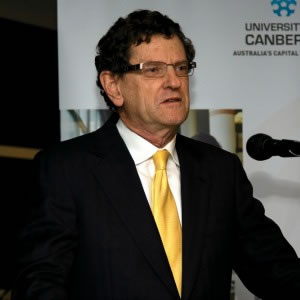Australia tipped as arbitration hub: Chief Justice
Australia’s robust judiciary and strong legislative frameworks are likely to attract international arbitration to our shores, High Court Chief Justice Robert French has said.

Speaking at the 30th anniversary of the Australian Centre for International Commercial Arbitration (ACICA), Chief Justice French said Australia’s judiciary had long accepted the legitimacy of international dispute resolution.
To continue reading the rest of this article, please log in.
Create free account to get unlimited news articles and more!
“There can be little doubt…that the statutory framework, constitutionally supported, provides a stable platform for the projection of Australian dispute resolution services in our region and beyond,” he said.
While acknowledging the market for arbitration was “highly competitive”, he suggested Australia’s judicial tradition gave it an edge.
“With a solid and well-respected judicial system, a solid constitutional and statutory foundation for the arbitral process and a highly competent cohort of legal practitioners and others with expertise in the fields of international trade and commerce, dispute resolution in Australia is in a strong position,” he said.
However, he noted Australia’s geographical isolation could put it at a disadvantage, particularly when compared with Singapore and Hong Kong.
“There's no doubt that other countries in our region are highly committed to the provision of these services,” he said.
He praised ACICA for establishing itself as Australia’s foremost cross-border dispute resolution body and raising Australia’s profile in the global market.
“I think ACICA, having regard to its achievements, is in a position to look forward with a considerable degree of optimism to enhancing Australia's reputation as a considerable international service provider,” he said.
ACICA president Alex Baykitch shared the chief justice’s positive outlook, saying Australia had already begun to attract considerable international attention.
“Interestingly, we've had a number of disputes in the last 12 to 18 months which have no connection to Australia whatsoever,” he said.
He speculated that Australia’s “quality judiciary” and “legislative foundation” were the main drawcards for overseas corporations.
Although noting that competition in the region is heated, he suggested Australia may become particularly attractive to US corporations dealing with Asian counterparts.
“We have a common language, a common legal heritage and common cultural backgrounds. Focusing on the US is one thing I'd like to do,” he said.
He also committed to raising the profile of arbitration within Australia, noting the “excellent judiciary” could actually be a disadvantage for arbitrators.
“Why would you pay for an arbitration when you can get it for free through the courts?” he said.
To combat this perception, he plans to promote arbitration’s cross-border enforceability to Australian companies.






